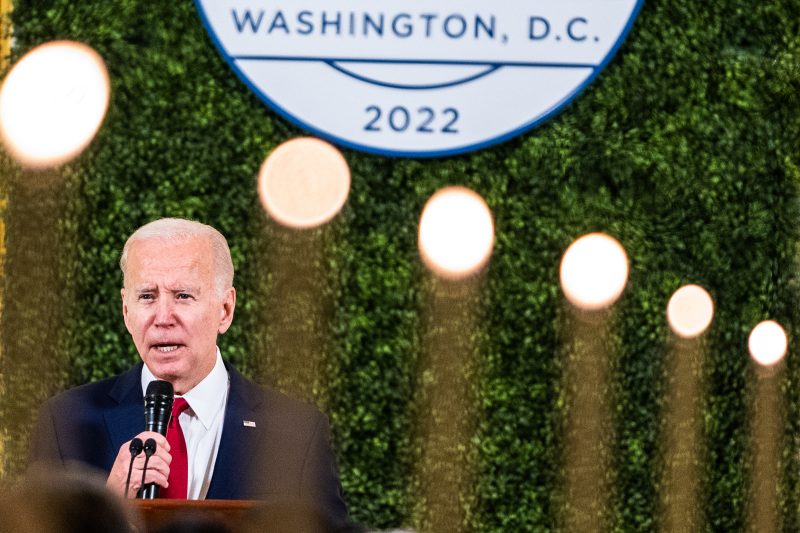President Biden announced Thursday he would make his first presidential visit to Africa next year as he seeks to convince African leaders that the United States is serious about engaging them in international decisions and countering China’s rising influence in the region.
During remarks at the U.S.-Africa Leaders Summit, Biden also formally announced the United States’ support for the African Union to become a permanent member of the Group of 20 nations, a step that would give African nations a long-sought prize and could make it easier for Biden to secure their cooperation on issues like Ukraine and climate change.
“I’m eager to visit your continent,” Biden said. “Some of you invited me to your countries. I said, ‘Be careful what you wish for because I may show up.’”
“I’m looking forward to seeing many of you in your home countries,” Biden added. He said Vice President Harris and first lady Jill Biden would also visit Africa, in addition to several Cabinet members.
Biden hosted the first U.S.-Africa summit in eight years; the last such summit was in 2014 under President Barack Obama. Biden has also worked to repair the relationship with many of the continent’s leaders after Trump denigrated and cast aside the region during his presidency.
Biden has spent much of the week seeking to convince African leaders that the United States will improve its relationship with the continent and that it is serious about its commitments. The White House had also announced it would commit $55 billion to Africa over the next three years in economic, health and security support.
Many African leaders expressed hope that Biden would visit, which they said would signal a level of seriousness about his administration’s engagement with Africa that has been lacking.
As Beijing invests billions of dollars in African infrastructure projects and Russian-backed paramilitary forces help train African militaries, the United States has countered with promises of food assistance and investments in farming and green power. This week’s summit included sessions on agriculture and food security, issues that African leaders have been eager to discuss — particularly as Russia’s invasion of Ukraine has aggravated a growing food crisis on the continent and elsewhere in the Global South.
Secretary of State Antony Blinken, who launched a new strategy for sub-Saharan Africa during a tour of the region in August, shortly after a similar visit by his Russian counterpart, has stressed that Washington is not asking African leaders to choose between East and West. But many African countries feel there is an implicit choice.

